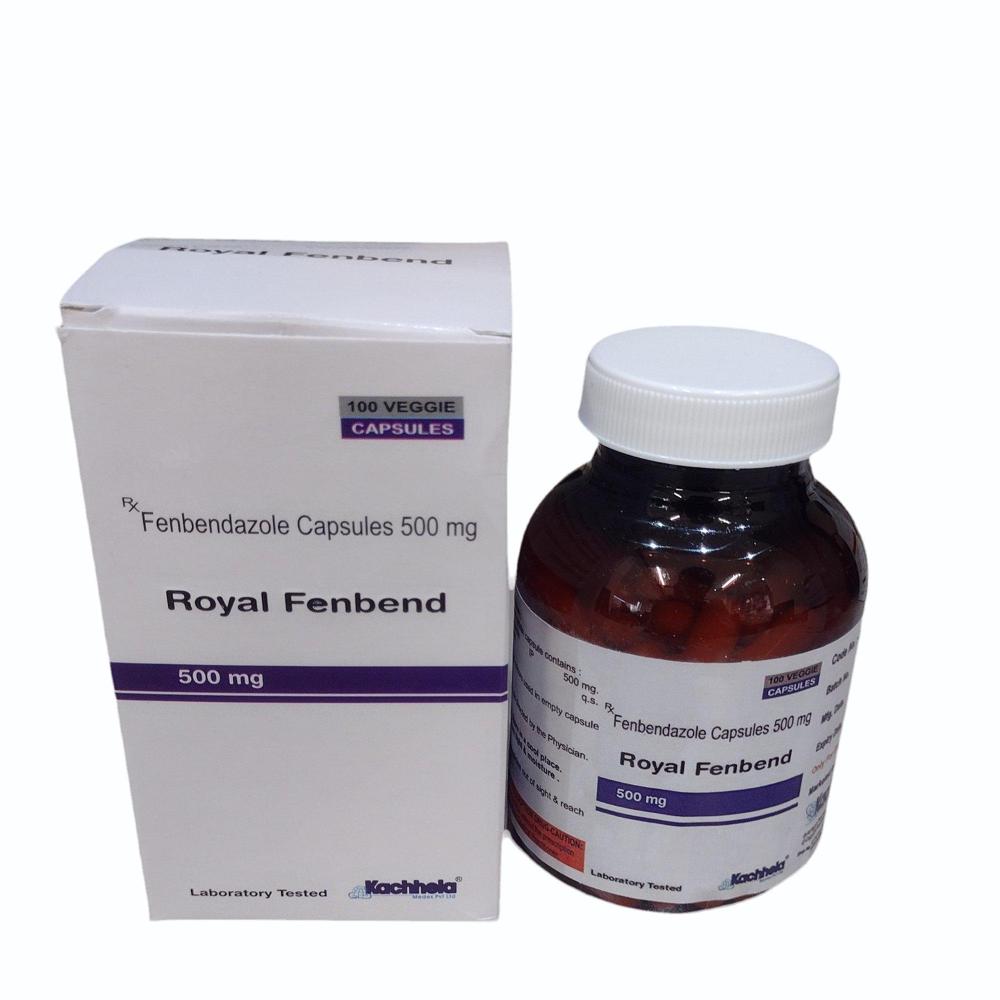fenbendazole 444: Dosage Guidelines You Should Follow
Discovering the Systems Behind Fenbendazole and Its Influence on Animal Health And Wellness
Fenbendazole is an extensively made use of anthelmintic recognized for its effectiveness against various bloodsuckers. Its key device involves the inhibition of microtubule formation, which interferes with crucial procedures in these pathogens. Past its antiparasitic properties, fenbendazole additionally appears to enhance immune reactions and possesses anti-inflammatory benefits. Understanding these multifaceted impacts can expose new applications for pet health. Nonetheless, questions stay regarding its full capacity and security account.
The Pharmacokinetics of Fenbendazole
The pharmacokinetics of fenbendazole, a commonly made use of anthelmintic in veterinary medication, involves the research study of its absorption, circulation, metabolic process, and discharging within animal systems. After administration, fenbendazole is swiftly soaked up from the stomach system, with peak plasma concentrations happening within hours. Its circulation is affected by aspects such as tissue binding and lipid solubility, allowing it to pass through different cells successfully. The drug undergoes extensive metabolism primarily in the liver, where it is exchanged energetic and inactive metabolites. These metabolites play a function in the medicine's total effectiveness and safety and security profile. Discharging takes place largely via feces, with a smaller sized proportion removed by means of pee. The half-life of fenbendazole differs amongst varieties, which affects dosing programs. Understanding these pharmacokinetic residential properties is necessary for maximizing its healing use and making sure effective parasite control in veterinary techniques.
Systems of Action Against Bloodsuckers
Fenbendazole exerts its antiparasitic impacts primarily through the inhibition of microtubule formation in bloodsuckers. This interruption impacts their architectural honesty and mobile functions, resulting in damaged energy metabolism. Consequently, the medication efficiently jeopardizes the survival and recreation of different parasitical microorganisms.
Restraint of Microtubule Formation
Restraint of microtubule development represents a vital system whereby specific anthelmintic agents, consisting of fenbendazole, exert their results on parasites. Fenbendazole binds to tubulin, a healthy protein that develops microtubules, disrupting the polymerization procedure essential for microtubule assembly. This disturbance harms important mobile features, consisting of mitosis, intracellular transportation, and structural integrity. As microtubules play a crucial role in preserving the shape and function of parasitic cells, their restraint brings about cell cycle apprehension and ultimate death of the bloodsucker. This device is especially efficient against nematodes, as their reliance on microtubules for mobility and nutrient absorption makes them susceptible to fenbendazole. Consequently, the restraint of microtubule formation is a critical facet of fenbendazole's therapeutic effectiveness in veterinary medication.
Disturbance of Energy Metabolism
Disrupting basal metabolism is one more crucial mechanism whereby fenbendazole targets parasitic organisms. This anthelmintic alters the power manufacturing paths within bloodsuckers, mainly influencing their ability to produce adenosine triphosphate (ATP) By preventing sugar uptake and interfering with mitochondrial feature, fenbendazole limitations the power resources crucial for the survival and reproduction of these organisms. Consequently, parasites become progressively prone to ecological stresses and immune responses. Furthermore, the disturbance in basal metabolism not only affects the bloodsuckers directly but additionally decreases their capability to absorb nutrients, additionally hindering their growth. In general, the disruption of power metabolic process represents a fundamental facet of fenbendazole's efficacy versus various parasitical infections, contributing substantially to enhanced animal health and wellness outcomes
Prospective Negative Effects and Security Profile
The potential adverse effects and security account of fenbendazole warrant careful consideration, especially in veterinary applications. While usually related to as safe, some animals might experience adverse responses, including intestinal disruptions such as vomiting and diarrhea. Furthermore, neurological signs and symptoms, although rare, have been reported in delicate people, highlighting the need for tracking throughout therapy.

Fenbendazole's security in different varieties, including pet dogs and pet cats, has been documented, yet dosage and period of therapy have to be thoroughly taken care of to reduce threats. Pregnant or breast feeding pets may also require unique interest, as the impacts on creating unborn children or nursing children are not fully comprehended.
Normal vet examinations can aid reduce potential adverse effects and ensure the medication is provided appropriately. While fenbendazole is an efficient anthelmintic agent, alertness regarding its side results is necessary for maintaining pet health and wellness.
Fenbendazole's Impact on Immune Feature
Fenbendazole has been noted for its potential to modulate body immune system feedbacks in pets. Its anti-inflammatory residential or commercial properties may add to boosted immune feature, supplying a double benefit in taking care of wellness (fenbendazole). Understanding these effects is essential for reviewing fenbendazole's duty in veterinary medicine
Body Immune System Inflection

Anti-inflammatory Features
Anti-inflammatory results represent a substantial facet of fenbendazole's impact on immune function. Research study suggests that fenbendazole may minimize the manufacturing of pro-inflammatory cytokines, which are essential in mediating inflammatory reactions. By modulating these cytokines, fenbendazole can potentially minimize inflammation-related conditions in animals. This anti-inflammatory action not just help in handling signs connected with various illness but also boosts total body immune system effectiveness. Additionally, its ability to advertise a balanced immune response helps protect against too much inflammatory damages, which can result in chronic wellness problems. Consequently, fenbendazole's role in swelling administration highlights its significance in veterinary medication, supplying a dual advantage of antiparasitic activity and immune system support for animal health.
Applications Past Typical Parasitical Infections
While largely recognized for its effectiveness versus various parasitic infections, fenbendazole has actually amassed focus for potential applications past this typical range. Current researches suggest that fenbendazole might have useful results on cellular wellness and immune action, making it a fascinating candidate for managing various other wellness problems in animals. Its reported anti-inflammatory buildings might try this out offer relief for pets suffering from chronic inflammatory conditions. Additionally, some research shows that fenbendazole can play a function in sustaining the total health of animals by enhancing nutrition absorption and gastrointestinal health. In addition, its potential as a complement treatment in cancer treatment has stimulated passion, as preliminary findings suggest it may hinder lump cell development in certain contexts. These diverse applications highlight fenbendazole's adaptability, urging more expedition right into its complex advantages for pet wellness past its traditional use as a deworming representative.
Future Research Study Instructions and Effects for Pet Wellness
The exploration of fenbendazole's prospective applications has opened brand-new avenues for research study aimed at boosting pet health and wellness. Future researches might concentrate on its efficiency versus a broader series of microorganisms, consisting of germs and viruses, therefore expanding its duty in vet medication. The ramifications of fenbendazole's devices, such as its influence on immune modulation, warrant additionally examination to recognize exactly how it can boost total wellness in different types.
In addition, study might discover excellent dosages and formulations to make the most of efficacy while minimizing possible adverse effects. Exploring fenbendazole's collaborating effects with other drugs might cause much more reliable treatment methods. Longitudinal studies reviewing lasting results in animals treated with fenbendazole might supply valuable insights right into its security and effectiveness. In general, the continued exploration of fenbendazole uses encouraging capacity to improve animal wellness, requiring a collective strategy amongst researchers, vets, and pharmaceutical developers to assist in innovations in this field.
Frequently Asked Concerns
Can Fenbendazole Be Utilized in Animals for Bloodsucker Prevention?
The concern of whether fenbendazole can be made use of in livestock for bloodsucker prevention is pertinent, as manufacturers look for reliable therapies (222 mg). Study suggests it might supply advantages, however appropriate standards and veterinary recommendations are vital for risk-free use
What Is the Recommended Dose of Fenbendazole for Different Pets?

Exist Any Recognized Drug Communications With Fenbendazole?
Present knowledge suggests that fenbendazole may interact with certain medicines, potentially impacting their efficacy or metabolism. Veterinary specialists advise speaking with a veterinarian to assess specific pet situations and identify any kind of feasible interactions prior to administration.
Exactly How Does Fenbendazole Compare to Various Other Antiparasitic Medications?
Fenbendazole is commonly contrasted to other antiparasitic medicines based on effectiveness, spectrum of task, and security profiles. It is preferred for its efficiency versus a wide variety of bloodsuckers while usually displaying minimal side results in animals.
Is Fenbendazole Effective Versus Viral or Microbial Infections in Pets?
The performance of fenbendazole against viral or microbial infections in pets stays unverified. Research study mainly focuses on its antiparasitic residential or commercial properties, with limited proof sustaining any type of role in dealing with non-parasitic infections in vet medication.